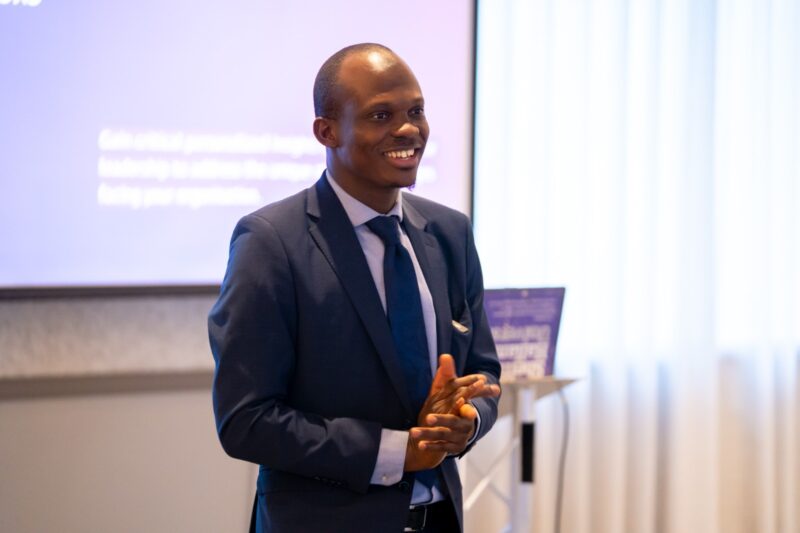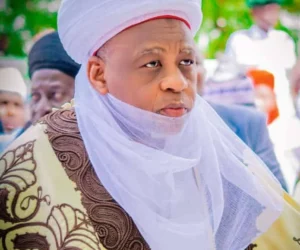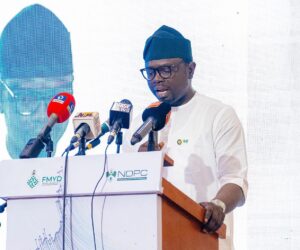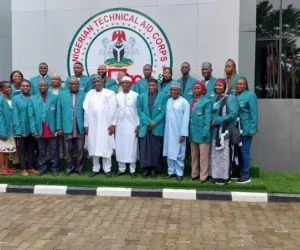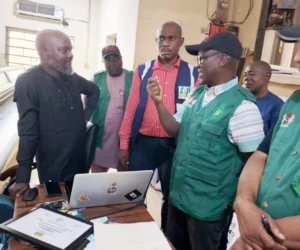At a time when the world faces turbulence, fractured geopolitics and widening gaps in leadership ethics, there are individuals who choose to rise above ambition and embrace service.
Dr Alim Abubakre stands firmly among that rare class of leaders who see influence not as a route to personal gain but as a responsibility to elevate others and strengthen societies.
His recent appointment to the Board of the Business Council for Africa is not a ceremonial recognition.
It is a strategic moment for the UK, for Africa and for the thousands of leaders whose decisions shape prosperity, governance and opportunity across the continent.
It is also a moment that reflects the values that have defined Dr Abubakre’s life work: service without financial reward, leadership without ego and a relentless commitment to building nations and institutions that endure.
Two of Dr Abubakre’s most significant leadership commitments are entirely voluntary.
His work as a Board Member of the Business Council for Africa and his contributions as Founder and Non-Executive Chair of TEXEM UK are unpaid.
In an age where board roles are often transactional and influence is frequently monetised, he chooses a different path. He chooses impact.
These roles allow him to do what he does best: convene leaders, elevate governance standards, nurture strategic thinking and ignite responsible leadership across continents.
Through TEXEM UK, the organisation he founded over a decade ago, he has helped more than 4,000 executives sharpen their leadership, strengthen institutions and make better decisions in difficult environments.
Many of these leaders now occupy commanding heights across public and private sectors in Nigeria, Kenya, the UAE, Ghana, the UK and beyond.
Yet Dr Abubakre’s contributions at TEXEM have always been rooted in the belief that leadership development is a national asset, not a commercial product.
His work at the Business Council for Africa mirrors the same spirit. Founded in 1956, BCA is one of the UK’s oldest Africa-focused business institutions, supporting policy dialogue, investment, enterprise and talent development across more than 30,000 members and networks.
Dr Abubakre joins a board that includes titans such as Arnold Ekpe, and he does so not for personal advancement but to help build the next generation of African opportunity.
As a Senior Lecturer in International Business at Sheffield Business School, Dr Abubakre brings his international experience into the classroom, shaping future leaders with lessons forged in the real world.
His work helps position Sheffield as a university that does not simply teach business theory but applies knowledge to transform lives, organisations and societies.
On his appointment to the Business Council for Africa board, Dr Abubakre said: “This role is not just a personal honour, but a platform to amplify Sheffield Business School’s mission of transforming lives and organisations through applied knowledge, responsible leadership and global partnerships.
”I am excited to contribute to strengthening UK–Africa collaborations that will shape inclusive growth, policy impact and sustainable business practices.”
His influence at Sheffield sits comfortably within the school’s global standing. Sheffield Business School recently achieved AACSB re-accreditation, placing it among the top six per cent of business schools worldwide.
This is partly because of scholars like Dr Abubakre whose work embodies the fusion of academic rigor, industry relevance and social impact.
Prof. Conor Moss, Executive Dean of the College of Business, Technology and Engineering, captures this clearly: “I have no doubt Dr Abubakre will use his expertise to strengthen UK-Africa business relations and showcase the applied knowledge, responsible leadership and global outlook that are key aspects of our mission.”
The endorsement from world-leading scholars speaks volumes about Dr Abubakre’s influence.
Prof. Christian Stadler of Warwick Business School notes: “For years he has combined rigorous scholarship with hands-on executive education, helping leaders turn turbulence into long-term advantage rather than short-term reactions.
”His deep understanding of African markets, his uncommon non-financial passion and his track record of building bridges between boardrooms in London, Lagos, Nairobi, Cairo, Abu Dhabi and beyond make him exactly the kind of strategic voice BCA needs.”
This is not praise for its own sake. It is a reflection of the weight of his ideas and the depth of his impact on decision-makers who shape financial systems, governance frameworks and economic resilience across continents.
Professor Rodria J. Laline of Harvard reinforces this: “His leadership does more than inspire. It drives the kind of positive, structural change that strengthens economic resilience and accelerates institutional reform.
”Dr Alim brings a decisive sense of urgency and an exceptional ability to turn complexity into meaningful impact. His values-driven leadership will significantly advance the Business Council for Africa’s mission.”
These are not ordinary commendations. They represent a recognition shared by global scholars that Dr Abubakre embodies the rare blend of academic credibility, diplomatic tact, entrepreneurial influence and development-driven passion that nations need in the twenty-first century.
In a world defined by uncertainty, leaders need more than technical knowledge. They need values. They need courage. They need clarity of purpose. Dr Abubakre’s career offers a blueprint for leaders who want to build legacies that endure.
His journey demonstrates that leadership is not measured by titles but by the lives one uplifts. It is proven through decisions that empower others. It is validated when individuals choose to give more than they take. His career has taught executives from oil and gas, banking, government, technology, manufacturing, real estate and social sectors that leadership is ultimately service.
For African leaders navigating reform, for UK leaders strengthening international partnerships, for global executives seeking credibility in emerging markets, his example offers guidance:
Leadership must be deliberate, ethical and anchored in a vision larger than oneself.
Dr Abubakre’s story is not merely about professional achievement. It is about choosing to lead with integrity when it is easier to lead with ambition. It is about dedicating unpaid service to build capable, responsible leaders. It is about strengthening Africa’s human capital while creating pathways for UK institutions to learn, collaborate and grow with the continent.
He reminds us that legacy is not the wealth we accumulate, but the lives we touch, the institutions we strengthen and the future we help build. His journey challenges leaders everywhere to rethink their purpose and commit to a path that makes the world better than they found it.
This is the kind of leadership that shapes nations. This is the kind of leadership Africa and the world need now.(NAN)
Edited by Ismail Abdulaziz

